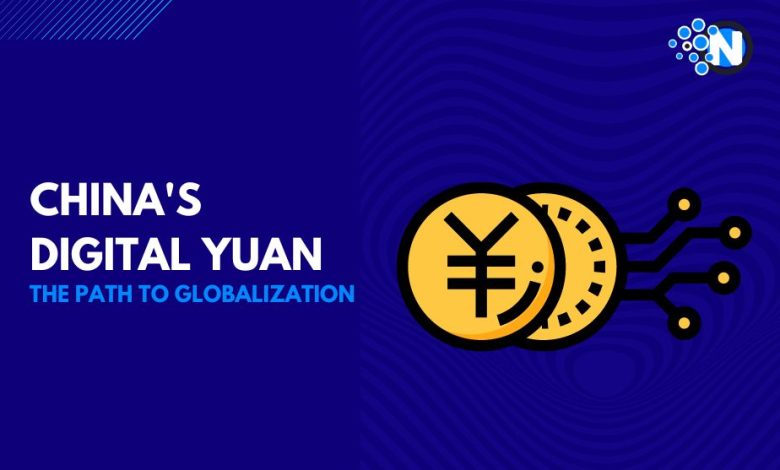China’s Digital Yuan – The Path to Globalization

China is leading the charge in the digital revolution that is taking place in the finance industry. China’s bold entry into the world of central bank digital currencies (CBDCs) is its digital Yuan. The People’s Bank of China (PBOC) issues and controls the digital yuan, a digital version of the Chinese yuan as opposed to traditional fiat currencies.
This innovative project has the power to improve the current global financial system and change China’s financial environment. If interested in learning more, you can visit yuan-pay-group.net to stay informed on this groundbreaking development in digital currencies.
Digital Yuan – From Test Projects to Worldwide Goals
In 2014, China launched the first digital yuan pilot programs in some locations, including Suzhou and Shenzhen. Through these pilot initiatives, the PBOC was able to test different features, get feedback from users, and improve the technology behind it. Now, the trials’ radius has been extended to include large cities such as Beijing and Shanghai. Even while it is still in the early stages of development, the increasing acceptance and ongoing pilot programs point to a possible early nationwide rollout.

For several years, the idea of a digital yuan has been simmering because of China’s aim to:
- Update its payment infrastructure to reflect the shift from a society reliant on cash to one that is more digital and effective.
- Encourage the inclusion of all finances using mobile technology to provide underbanked or unbanked people with access to the digital yuan.
- Two ways to challenge the US dollar’s hegemony are to weaken its hold on international commerce and maybe make the digital yuan a competitive alternative.
The Potential Global Impact
The digital Yuan has broad and diverse potential effects on the world stage. Here are some important things to think about:
Transforming International Payments: Compared to legacy systems such as SWIFT, this digital currency powered by China can facilitate exports or imports. Players in international trade may get to benefit from the eventualities of real time settlements and the pending elimination of middlemen banks for transactions.
Changing the Global Financial Landscape: This assertion can be regarded as at least partly achievable given the existing tendency toward the US dollar’s dominance in the global economy. Doing so can signify the emergence of a new global currency in the form of the digital Yuan. Cross-border trade and transactions can become more multipolar and shift towards the virtual Yuan, given other nations’ increasing recognition of the digital Yuan. The change can go a long way in influencing internationally direct investments and trading patterns.
Promoting Financial Inclusion: The digital Yuan is easily accessible and is mobile based and as a result it can bridge the financial inclusion gap internationally. The digital Yuan can therefore be safe and convenient way of making payments and transacting especially in the developing nations that still lack normal banking systems.
Challenges and Considerations
Despite the obvious advantages, there are a number of obstacles to the digital Yuan’s widespread adoption:
Regulatory Obstacles: Money laundering, capital flight, and data privacy remain key concerns. Establishing clear regulatory frameworks and international cooperation are necessary for the integration of the digital Yuan with the current global financial systems.
Building Trust: The digital Yuan’s widespread acceptance will depend on gaining international trust, especially in light of the Chinese government control over data privacy.
Competition: Other countries are looking into CBDCs as well. Which could result in a disjointed global financial system with rival digital currencies.
Security and Technological Progress
The digital yuan uses blockchain technology, which powers cryptocurrency infrastructure. In contrast to public blockchains, the digital yuan uses a permissioned blockchain, where the PBOC manages access and approves transactions. This method preserves central bank control while enabling faster transaction processing than public blockchains.
Security is important for all virtual currencies. To protect the digital yuan against cyberattacks, the PBOC uses sophisticated cryptography and secure enclaves. The digital currency has adopted a two-tier architecture in which commercial banks participate in the distribution and administration process to improve security further and deter counterfeiting.
Geographical Implications
There are important geopolitical ramifications to the growth of the digital yuan. It might possibly:
Strengthen China’s economic and technological influence: The digital yuan can be used to advance China’s Belt and Road Initiative and develop stronger economic relations with partner nations.
Transform the Global Financial Order: A digital yuan that is more widely used might put the US dollar-dominated financial system under pressure and possibly result in a more multipolar world. This, however, also prompts questions over possible reliance on a virtual currency under Chinese control.
The Road to Globalization
The digital Yuan’s future growth is still unclear but looks promising. Several things will affect its success:
User Adoption in China: To encourage domestic adoption, it will be crucial to establish citizens’ trust and show them the advantages of this digital currency.
International Acceptance: For adoption to be widely adopted worldwide, it will be essential to address concerns raised by other nations about data privacy, security, and possible dominance.
Regulation and Standards: Establishing worldwide standards and unambiguous legislation for CBDCs will be essential to building confidence and enabling smooth cross-border transactions. Establishing these norms will require cooperation between international organizations and central banks.
A New Global Financial Era? Final Thoughts
The success of the digital Yuan will depend on its capacity to overcome these obstacles and present a strong contender to replace the current financial systems. It remains to be seen whether this coin will take center stage as the world’s most popular currency or if it will remain a domestic player in China. But, one thing is certain: the digital Yuan represents a momentous shift in global banking that will have long-term effects.




